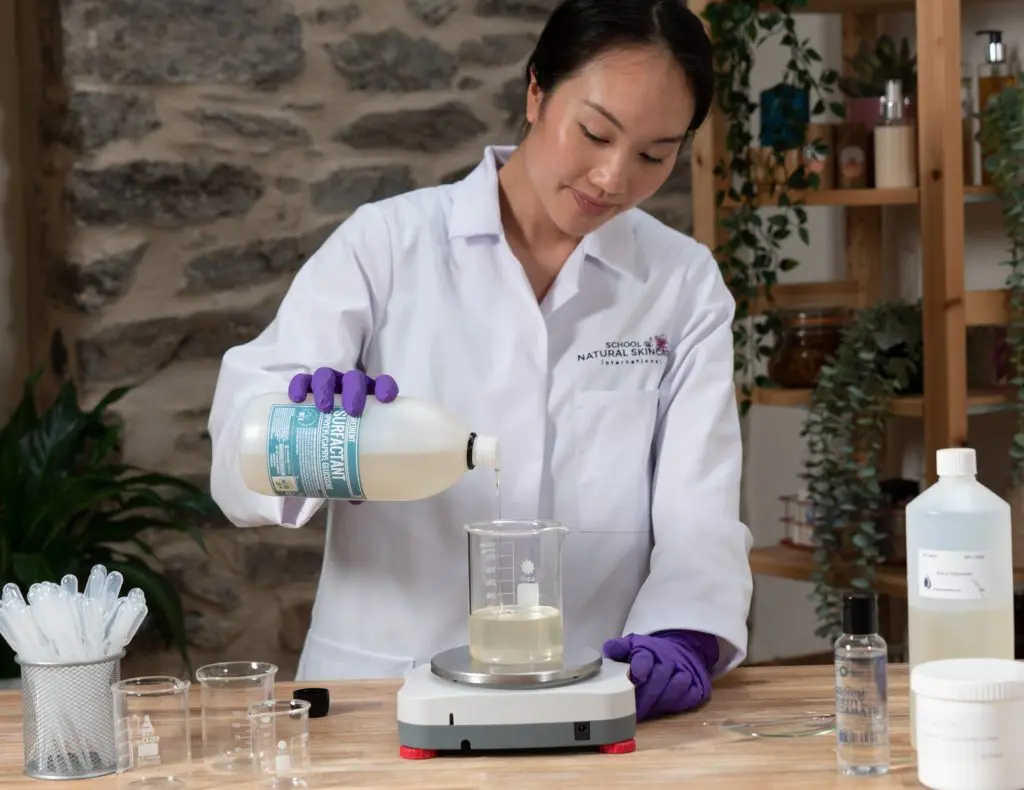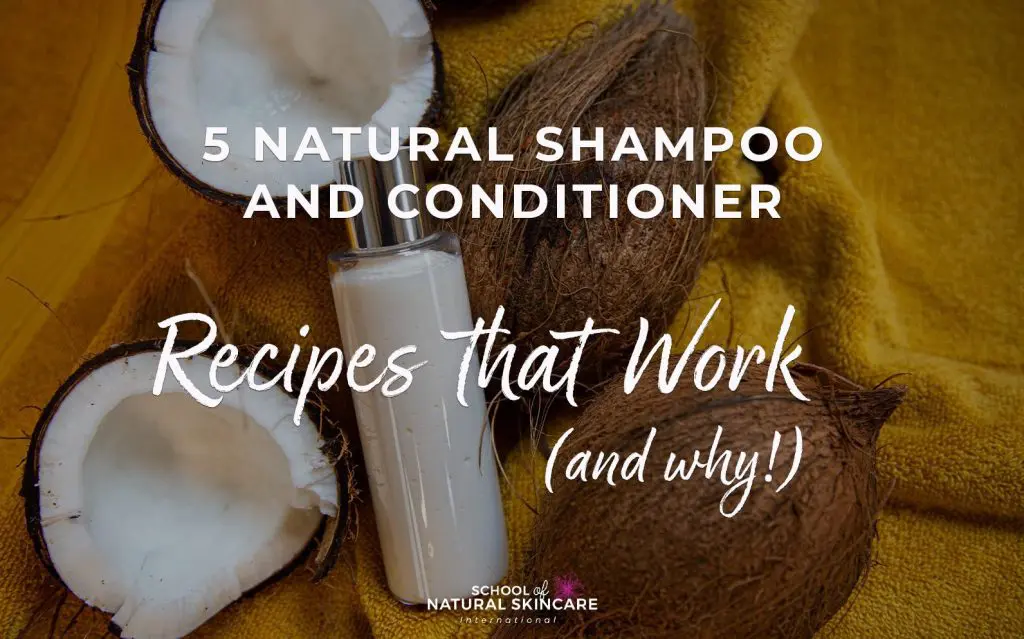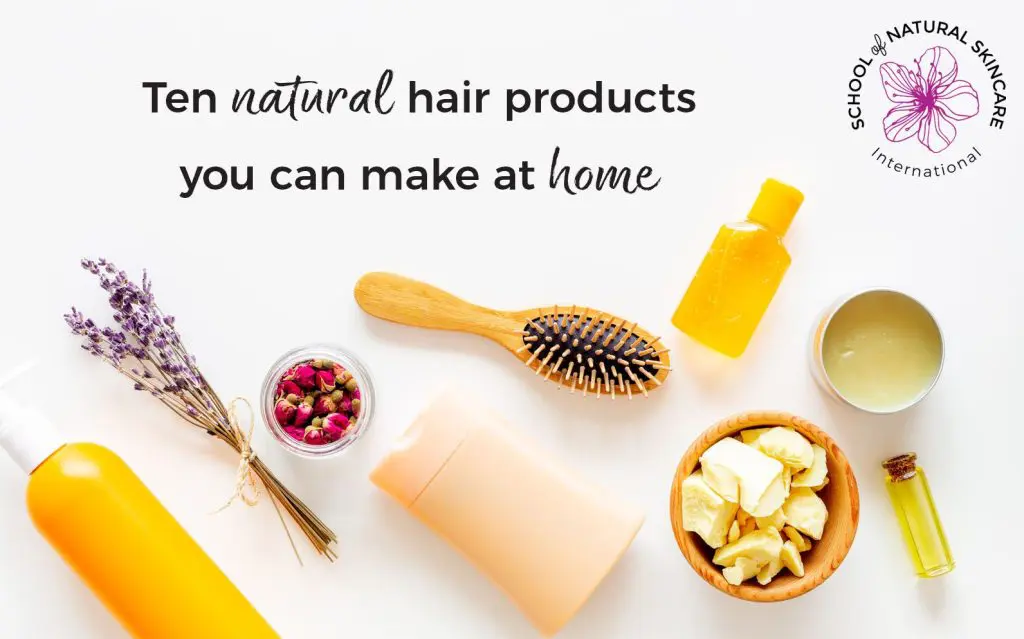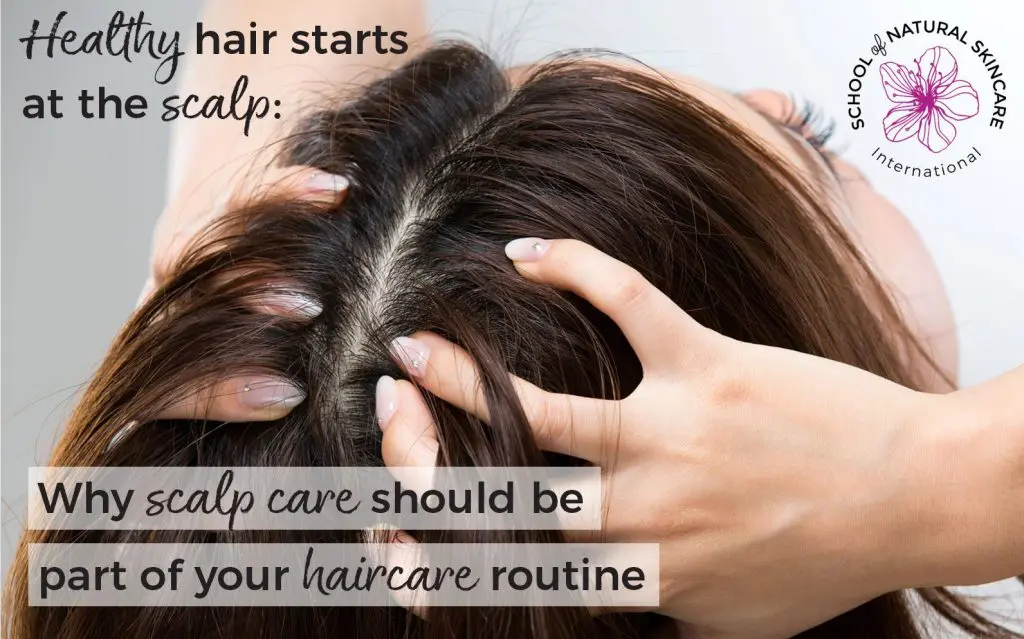Curly, coily, kinky, wavy, or wiry, the spectrum of Afro-textured hair is as beautiful as it is distinctive. Within each of the three broad hair categories—Asian, Caucasian, and African—there’s a wide array of subtypes, variations, and specific challenges, but of the three types, there’s so much more to consider when formulating products for Afro-textured hair.
People who have this hair type, and are used to its specific needs, often are used to searching high and low for rich, nourishing, and protective products to help maintain the health and beauty of their naturally stunning hair. It’s obviously much easier to field-test your DIY formulations when they apply to your hair type! But if you’re not used to this hair type, and you’re interested in formulating products specifically for it, there are some important things you need to know.
First, let’s talk about what makes Afro-textured hair so unique.

It’s All In The Curls
Although it appears quite dense and voluminous due to the curl structure, it is that very curl structure which makes Afro-textured hair the most delicate of all the hair types. To understand why, let’s go right down to the root!
Again, speaking very broadly, of the three types, Asian hair tends to grow the fastest, and nearly perpendicular to the scalp; the cross-section of each hair shaft is nearly circular. Caucasian hair can be more of an oval in cross-section, and it tends to grow moderately fast, depending on the subtype. Afro-textured hair tends to be the slowest to grow, and it grows at the most oblique angle to the scalp. It also has a very flat cross-section, much like a compressed oval, which is why curls happen. This means the hair can be weaker as compared to more oval or more round hair shapes.
So, because of this shape, it’s been said that this hair type needs to be treated like a fine silk blouse. You wouldn’t scrub a beautiful silk blouse and wring it out, you’d treat it gently, to prevent damage. By this same theory, think of the way your products are delivered, and consider if the method of delivery is too rough for this hair type. It needs to be pampered!

Moisture is Key!
Another very important thing to consider when formulating products for this hair type is that Afro-textured hair gets very dry, very easily—even if the scalp is oily. Certain products that are formulated to suit straighter or less fragile hair are simply not a great choice for Afro-textured hair. For example, shampoos that are formulated to reduce the appearance and feeling of oil in the hair will not treat this hair type with the tenderness it deserves! And lightweight conditioners may not penetrate the hair well.
However, when nurtured with all of the moisture it deserves, this hair type can be lustrous, glossy, and absolutely stunning! As you learn to formulate your products with the customer in mind, you’ll learn very quickly that the customer’s individual needs and desired results dictate not just what ingredients go into a specific formulation, but also what kind of formulations and products may be more (or less) useful to that customer.
Formulating With the Customer In Mind
How do you keep the customer in mind?
Well, for many folks, their very first customer is themselves! This may be true for you, and you may have one of the many subtypes that fall under the Afro-textured hair category—but if it’s not, then you need to do your research.
Ask your ideal customers: What are they using, what’s working, and what isn’t quite right? What product are they searching for, and can you meet that need with something natural, organic, and effective for this hair type? And if you’re formulating for yourself, and the shampoo you’re using just isn’t working, there is likely a better way to get your hair clean without using a shampoo better suited to a different hair type. Exploring all of these other formulation options allows you to truly formulate with the customer in mind.
If you want to formulate with a customer in mind, we wrote an article about how to do this for skincare. You might like to check it out because the ideas are transferable.
Rethinking Shampoo and Conditioner
With all of the information you glean from your target customers, what themes and ideas seem similar? What opportunities stand out to you as possible products?
Some examples may include:
Co-Wash
While wavy, straight, fine, or thin types of hair can tolerate more vigorous shampooing, ones targeted at reducing the appearance of oily hair and scalp, drier, more delicate curly, coily, or kinky hair has very different needs! In fact, for some Afro-textured hair subtypes, skipping shampoo altogether and relying on a co-wash—a gentle conditioning wash—can be a much better idea. So if you’re thinking of adding a shampoo product to your own line that’s targeted at people with African hair, take a step back and look at what their needs actually are. Is there a need for a traditional shampoo, or is there something better out there?
Conditioning Masks
Formulating conditioners for Afro-textured hair also requires some careful study. Because the hair is so dry and delicate, the kind of lightweight conditioners designed to keep from weighing finer hair down just will not do the trick—they aren’t nourishing enough for Afro-textured hair! Have you considered offering a weekly deep-conditioning treatment, or post-wash mask?
Treatments and Balms
Additional treatments, specifically targeted to the needs of Afro-textured hair, are great choices of products as well. This can include pre-wash masks, leave-in sprays, and balms that hydrate and renew, in preparation for heat or styling. These may be things that your customers with Asian or Caucasian hair types just don’t consider; many deep-hydrating balms and masks aren’t at all suited to fine, straight Caucasian hair.
Key Things to Remember
- Know your audience. Really know them, and listen to what they’re saying.
- Expand your formulation skills and knowledge, and think outside the Caucasian hair box.
- Give yourself the skills to create safe, effective, unique products that are natural and organic, work beautifully, and make people feel like their hair has never looked more healthy or more radiant!
There’s so much you can do, and the Diploma in Natural Haircare Formulation is your jumping-off point, to really kickstart your learning. If you’ve been offering a few hair care products, but you want to expand your skills or dive into a whole new market, the Diploma will help you start doing it. Come on over and give it a try!
Free Training
Become a Natural Haircare Formulator
There are so many myths and mistakes online about haircare formulation—many of which can actually damage your hair.
Learn the professional way to formulate natural and organic haircare products with our free email training series.

Exclusive for our newsletter subscribers. Sign up now!
We look after your data in accordance with our privacy policy.
What you’ll learn:
- The essential ingredient you must include in a shampoo.
- Five natural shampoo recipes that won’t work and why.
- How to avoid SLS – and gentle, natural alternatives.
- The difference between making haircare products and skincare products.
- How NOT to make your own shampoo and conditioner bars.
Exclusive for our newsletter subscribers. Sign up now!
Enjoyed reading this article? Save this image below on Pinterest so you can be sure to remember!





